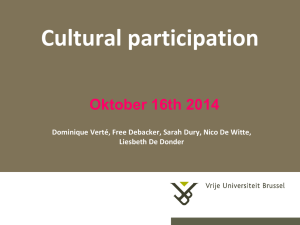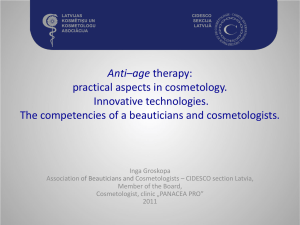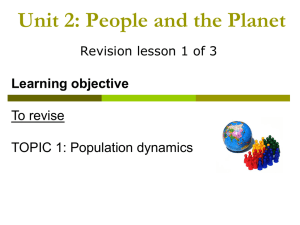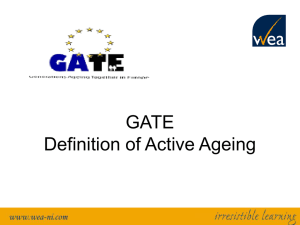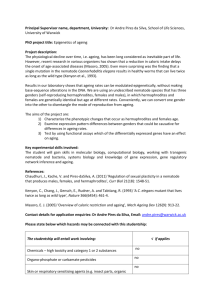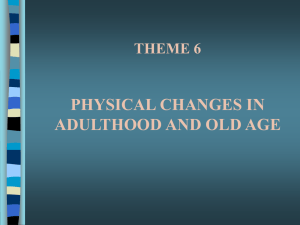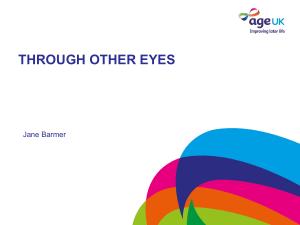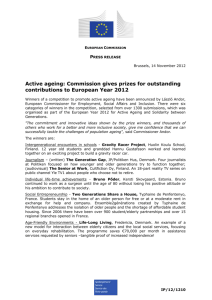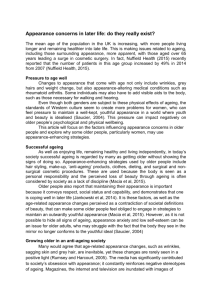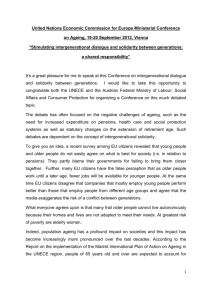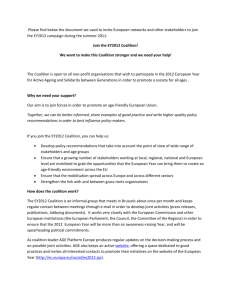The Social Forum Statement by Ms. Leyla Alyanak Deputy Director
advertisement
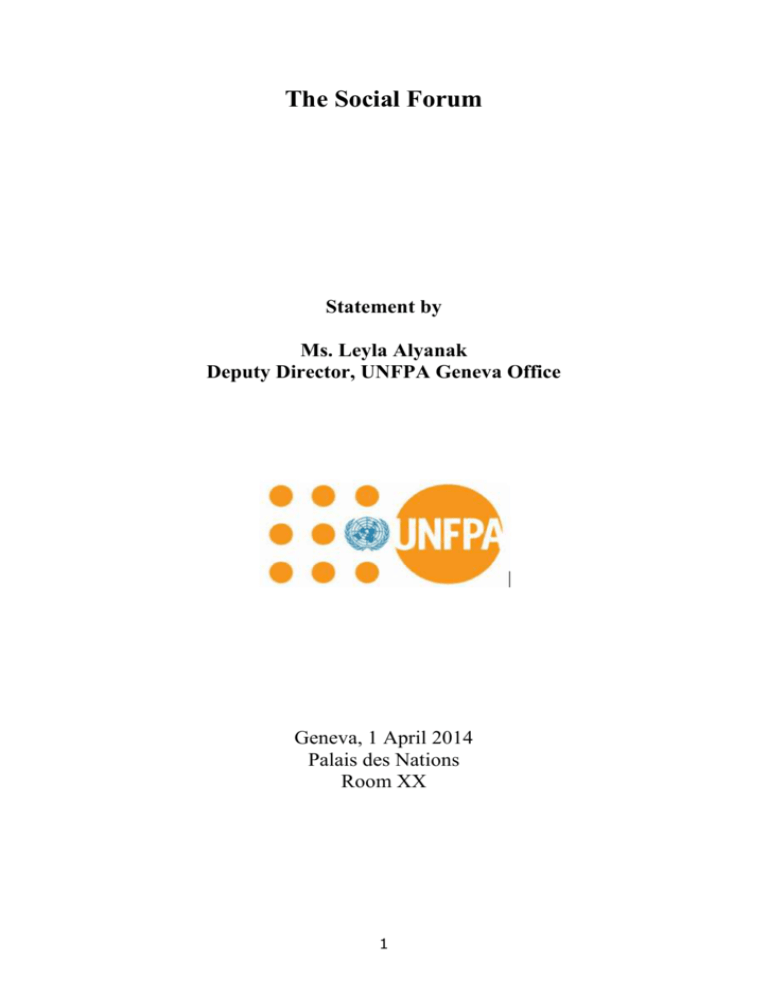
The Social Forum Statement by Ms. Leyla Alyanak Deputy Director, UNFPA Geneva Office Geneva, 1 April 2014 Palais des Nations Room XX 1 Ladies and Gentlemen, Ageing is today’s reality. We not only live longer and healthier, but there are more of us doing so. Yet in many places, the older we get, the more invisible, the poorer, and the more ignored we are. It isn’t like this everywhere – but it shouldn’t be like this ANYWHERE. It is my great pleasure to speak before the Social Forum today, not only about the human rights of older persons, but as a new older person, if I may call myself that, being a few weeks shy of my 61st birthday. Population ageing reflects our development successes, and older persons make a vital contribution to society, whether by continuing to work or by passing on their traditions, skills and knowledge. My 15-year-old niece doesn’t like to think I know anything, but she must suspect I do because she keeps asking me questions. Let’s look at numbers for a moment. Globally, one of every nine people is aged 60 or over and the proportion of older persons is increasing faster than any other age group. Globally, some 58 million people turn 60 each year: that’s almost two people every second. About two-thirds of older persons live in developing countries. 2 Older women by far outnumber older men in almost all societies. Currently, there are 84 men for every 100 women among those aged 60 years or more and only 61 men for every 100 women 80 or older. A sad fact is that women may face greater hardship than men as they age. We live longer and a woman living in poverty will become poorer as she gets older. At UNFPA we address population ageing and the rights of older persons by working with Governments to develop national policies and legislation, by supporting research and data collection, and by disseminating good practices that provide countries with the evidence they need to formulate the best policies and programmes. We also advocate for the inclusion of ageing in national and international development frameworks. We missed the chance with the MDGs but we’re working hard with our partners now to ensure that ageing is not left out of the post 2015 development agenda. For example two years ago, together with HelpAge International and more than 20 UN agencies and partners, we prepared a report called Ageing in the 21st Century: A celebration and a challenge. 3 It analyzed the situation of older persons and confirmed that first, the world is quickly becoming much older and developing countries will soon be ageing the fastest. Second, that population ageing is an opportunity but also presents huge challenges. And third, that ageing is not about the future but about the present, so now is the time to act. And there has been action. In August last year the 4th working session of the Open-Ended Working Group on Ageing reached consensus among Member States that the human rights of older persons needed urgent improvement. Discussion revolved around several issues, including an international convention on human rights for older persons, the poor implementation of existing legal instruments and ongoing discrimination, and the need to review existing gaps. A few months later, in November 2013, the Division for Social Policy and Development of DESA convened an expert meeting on neglect, abuse and violence of older women, during which experts highlighted the need to develop an explicit human rights framework for understanding this group. With the right measures in place to secure health care, regular income, social networks and legal protection, there is a longevity dividend to be reaped worldwide by current and future generations. 4 From UNFPA’s perspective, if we are to build a society equal for young and old, we must look at three key areas. First, there is an urgent need to guarantee income security and access to essential health and social services for older people. Second, we must acknowledge that investing in young people today is vital for improving the lives of future generations of older persons. But this must be combined with flexible employment, lifelong learning and retraining opportunities to enable and encourage current generations of older people to remain in the labour market. Finally, we must involve everyone – that means governments, civil society, communities, families and older persons themselves – in developing a new rightsbased culture of ageing. We must collectively change the mindset and societal attitudes towards older persons, from welfare recipients to active, contributing members of society. To do so means working towards the development of international human rights instruments and their translation into national laws and regulations. It also means affirmative measures that challenge age discrimination and recognize older people as autonomous subjects. 5 In conclusion, Population ageing is irreversible. It is a megatrend that is transforming economies and societies around the world. How countries grapple with ageing and the extent to which they seize its opportunities and confront its challenges will without a doubt be a major determining factor in the future of humankind. We are convinced that the work of the Human Rights Council has a fundamental role in guaranteeing a society for all ages, in which both young and old are given the opportunity to contribute to development, and to share in its benefits. Many of us will understandably become apprehensive about the fast passing of years, especially those with no pension, no health care, and few rights to protect them. In a more equitable world, an older person would be approaching this time of life with joy rather than anxiety, with fulfilment rather than fear. This Social Forum is a foundational stepping stone to making that happen. Thank you. 6
